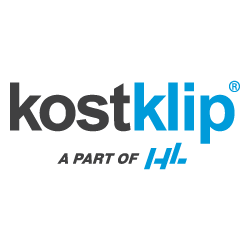Dive Brief:
- Fairway Market in New York City is testing a new technology in its stores that allows customers to skip the checkout lines by using an app on their smartphone, Winsight Grocery Business reports. The retailer has been testing the tech for several months in its Harlem and Chelsea locations. Company officials are pleased with early results and intend to expand the service to other stores, the report says.
- Fairway partnered with FutureProof Retail, a local startup that provided the technology, which is part of the retailer’s mobile app. FutureProof offers technology that can be customized to the point-of-sale, payment systems and physical layout of individual retailers. At Fairway’s Chelsea store, a counter alongside a traditional checkout includes racks of self-service shopping bags set aside for mobile shoppers who scan a QR code to exit.
- “We here at Fairway have been testing and evaluating in-store technology that’s designed to elevate our customer’s experience, especially around faster and more convenient checkout,” Mike Penner, director of retail applications and technology for Fairway told Winsight Grocery Business. “We’ve been working with FutureProof Retail since the beginning of this year. At this point, based on the early feedback from our ongoing beta test of their line-free mobile checkout technology, we are really very excited for the impending rollout to all of our customers.”
Dive Insight:
Fairway Market is the latest in what is likely to be a steady stream of grocers adopting “scan and go” or other technologies that allow customers to scan items as they shop, pay with a mobile phone app, and leave the store without going through a checkout lane.
Grocers rightly recognize consumers want convenience, and they will adapt to new systems as long as they’re not too clunky. What's more, better technology reduces the risk of theft from stores. Some stores are beginning to move away from self-checkouts, preferring instead to invest in the scan-it-yourself systems. That’s because reports have shown that checkout wait times are a major headache for consumers. Although self-checkout has been marketed as a solution to this problem, some studies have found the method doesn't save consumers any time. It also increases the likelihood of theft.
Still, FutureProof says it has the technology to reduce theft. Company co-founder and President DiDi Chan told Winsight Grocery Business that testing has shown the technology can help reduce loss by theft by doing things like letting consumers know the store is aware of them, the report said. The app can also learn when a shoppers do things like scan conventional strawberries but bag the pricier organic variety.
Smaller grocers realize they need to beef up their tech in order to compete with the likes of Amazon’s cashier-free store Amazon Go in January. So far, it has been a hit with the company, which is reportedly planning to open another a half dozen locations in different markets this year. However, Amazon has the money to install cameras and sensors throughout the store, which the company says can tell which item a consumer places in a cart to automatically charge him — and reverses the charge if he puts the item back on the shelf. Kroger’s Scan, Bag, Go also lets shoppers use their mobile phones or special handheld devices to ring up items as they shop, skipping the front end altogether.
While Fairway is seeing success with this model, it certainly isn't a sure thing. Walmart, which had tried a similar Scan & Go service, ended it four months into a 150-store trial. The megaretailer found that customers had problems trying to bag, weigh and scan items like produce, which led them to head to checkout counters. In grocery retail, this is an issue that needs to be solved through technology — either through better technology, customer education or more prepackaged produce with set prices.
Fairway execs say the new technology is a way for the retailer to stand out in the crowded grocery industry. And consumers appreciate skipping long lines at the checkout. But it remains to be seen whether this technology is enough for the retailer to leap over hurdles other grocers faced in attempts to launch similar pay-as-you-go systems.









